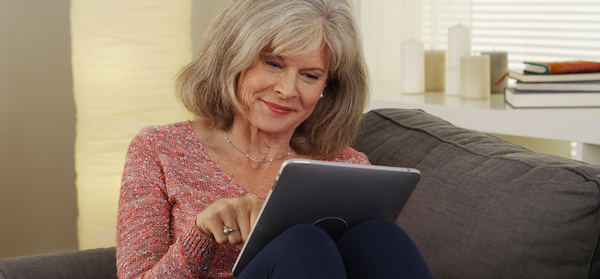It’s no secret that social media keeps the community connected on a global scale. Many people of all ages enjoy using platforms, such as Facebook, YouTube, Twitter, Instagram and Pinterest, to keep up to date with world news, views and current affairs, as well as keeping in touch with friends and family all over the world.
Using social media is no longer something for the younger generation. In fact, nowadays, around 35 per cent of people aged over 65 have adopted the use of social media. And for good reason. Social media can really help to enhance your retirement years. But before we share how, let’s take a quick look at the most common platforms.
Facebook
We’re going to start with the big kid on the block, which is the most widely used social media platform in the world. In fact, half the world’s internet users have a Facebook account, so that should give you an idea of the amount of content available. Facebook is great for finding long, lost friends, keeping in touch with family, joining virtual groups, finding recipes and interesting articles about, well, whatever you’re into really. Why not like our Facebook page to get you started?
Instagram
Instagram is fast becoming one of the most popular social media networks around. It is primarily a photo-sharing app with little importance placed on text, although you can write as much as you want about the photo you post. The app, best used on a smartphone, is also fantastic for its innovative use of pre-set photo filters. Simply upload your pics, then pick a fancy filter, and your photos will take on a new life of their own. You can also share and view videos with your family and friends.
Pinterest
The primary use of Pinterest is for sharing images that can be saved to ‘boards’ for future use. It’s kind of like a digital photo album or scrapbook. You can share your own photos or follow other public pages. It’s a handy platform for sharing food pics, craft ideas, projects and whatever tickles your fancy.
Twitter
Twitter is good for getting out an idea or opinion in 140 characters or less, although there are rumours that the character count could soon increase. Users can follow popular celebrity accounts, news services and social groups, as well as friends and family.
LinkedIn
LinkedIn is primarily a business networking platform, but that doesn’t stop you from using it for your own benefit. Log in and create your own profile and you may end up finding some part-time work with someone or a company looking for your specific skill set. It’s handy to keep in touch with former workmates and there’s also a forum for people who want to discuss theories, research and new advances in technology, health, business and more.
YouTube
YouTube is more than just funny dog and cat videos. Want to learn how to paint with oils or the best way to repaint your house? Chances are, you’ll find a how-to video on YouTube. It’s also fun to reminisce – you’ll be amazed at the number of nostalgic videos, films and documentaries available. Users can subscribe to any number of ‘channels’ and can also be alerted when videos of interest are posted.
How social media could enhance your retirement
Learning to use social media effectively may take some time, but it can be well worth the effort. Some of the ways in which social media can enhance your retirement include:
- re-connecting with lost friends
- saving money by finding deals and discounts from vendors advertising services and promoting ‘online only’ special offers
- finding health and lifestyle information that can improve your quality of life
- staying up to date with news and current affairs
- learning new skills, such as painting, crafting, photography or computing. This not only stimulates brain activity, but also enhances creativity
- mastering new skills improves confidence, and opens up possibilities for part-time or freelance employment, or enables retirees to join new social group and networks
- being a part of family life, no matter the distance, by sharing photos, videos and updates on family activities
- reducing the feeling of social isolation, particularly for those who have no means of transport, or have restricted movement
- improving demeanour and sense of wellbeing through staying connected with friends and family and making new social connections
- enjoying the ability to live more happily and independently, through interacting with others regardless of distance and finding new sources of interest
- let’s not discount those funny cat and dog videos either – they’re certainly good for a laugh and, as we all know, laughter is the best medicine
- and it can be a lot of fun, too!
Above all, social media is what you make of it, so why not give it a go?
Related articles:
Starting out with social media
Facebook fun with YourLifeChoices
Five tips to protect online privacy

